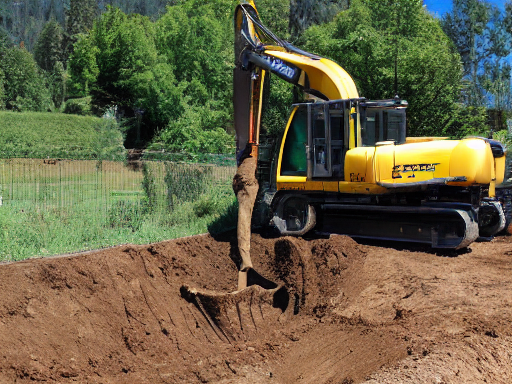Compensation for Utility works
Compensation for Damages Caused by Work on Utility Networks
Utility networks, such as electricity, gas, water, and telecommunications, play a crucial role in providing essential services to our homes and businesses. While necessary maintenance, repairs, and installations are carried out on these networks, there can be instances where damages occur, causing inconvenience or financial losses for affected individuals and businesses. In such cases, it is important to understand the concept of compensation for damages caused by work on utility networks. This blog post will explore the significance of compensation, types of damages covered, and the process for seeking compensation in these situations.
The Importance of Compensation
When work is performed on utility networks, accidental damages or disruptions can occur, leading to property damage, financial losses, or inconveniences for those affected. Compensation serves as a means to address these issues, ensuring that individuals and businesses are not unfairly burdened with the costs of repairs or other associated expenses. It promotes accountability, fairness, and consumer protection within the utility industry, fostering trust and confidence among consumers.
Types of Damages Covered
1. Property Damage: Work on utility networks can sometimes result in physical damage to nearby properties. This may include structural damage, damage to infrastructure, or damage to personal belongings. Compensation is designed to cover the costs of repairing or replacing the damaged property.
2. Financial Losses: Businesses heavily reliant on utility services may experience financial losses if work on the utility network disrupts their operations. This can include loss of revenue, additional expenses incurred to restore services, or business interruption costs. Compensation can help alleviate these financial burdens and assist in recovering the losses incurred.
3. Inconvenience and Disruption: Individuals and businesses may face inconveniences and disruptions during work on utility networks. This could involve temporary service outages, restricted access to premises, or limitations in the use of utilities. Compensation aims to mitigate the impact of these inconveniences by providing monetary relief for associated costs or losses, such as temporary alternative arrangements or inconvenience allowances.
Seeking Compensation: The Process
1. Documentation and Reporting: If damages occur as a result of work on utility networks, it is important to document the incident and gather evidence. This may include photographs, repair invoices, witness statements, or any other relevant documentation. Promptly report the incident to the responsible utility company, ensuring that all necessary information is provided.
2. Investigation and Assessment: Upon receiving a compensation claim, the utility company will initiate an investigation to assess the validity and extent of the damages. This may involve site visits, consultations with experts, and reviewing the evidence provided. The aim is to establish a clear understanding of the damages and their connection to the work carried out.
3. Negotiations and Resolution: In some cases, it may be beneficial to engage an expert consultant such as Land Utilities Advisory Group to negotiate with the utility company to achieve a fair resolution. An expert consultant can assess the damages, evaluate the compensation claim, and negotiate on behalf of the affected party to ensure a satisfactory outcome. This stage provides an opportunity for dialogue, collaboration, and a mutually agreeable resolution.
4. Appeal or Mediation: If there is disagreement or dissatisfaction with the compensation offered, affected parties may have the right to appeal the decision or engage in mediation. This involves presenting their case to an independent body or mediator who can review the evidence, facilitate negotiations, and help reach a fair and equitable resolution.
Conclusion
Compensation for damages caused by work on utility networks is a crucial aspect of consumer protection and accountability within the industry. It ensures that individuals and businesses are not left to bear the financial burdens resulting from accidental damages or disruptions. By understanding the importance of compensation and following the appropriate process, affected parties can seek fair redress, promote dialogue and collaboration, and ultimately maintain the reliability and integrity of utility services for all stakeholders involved.

Land Utilities Advisory Group Limited
Company number 14104723